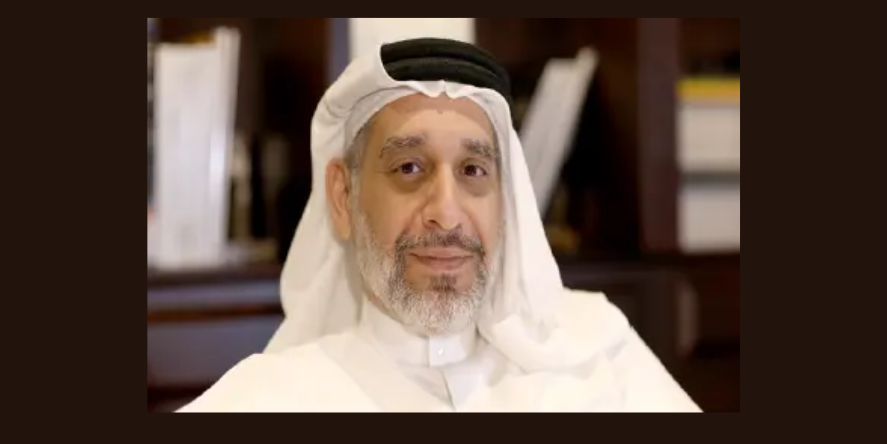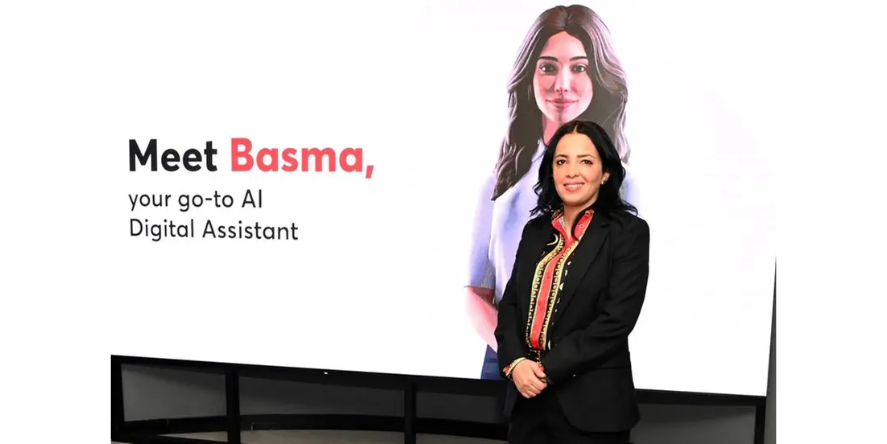The global ascent of mediation as an effective means of resolving intricate disputes is poised for continued growth, propelled by evolving changes in ethics and the increasing trend of courts mandating certain cases for mediation before litigation.
This article provides insights from Alternative Dispute Resolution (ADR) professionals around the world, offering diverse perspectives on mediation in their respective countries. Among the contributors are Joseph George from the USA, Victor Baba from Kenya, Zeinab Sadoughi from Iran, Sonal Kharbanda from India, Tat Lim from Singapore, Rosine Hanna from Lebanon, and Nanchang Nangwang from Nigeria.
The true impact of the rise of mediation may be underestimated, as many successful cases go unreported. Mediation has demonstrated particular efficacy in situations where parties maintain an ongoing business relationship or have an interest in future collaboration, often opting for mediation agreements after a dispute arises. Numerous claims abound regarding the successful resolution of multimillion-dollar disputes through tailored mediation proceedings, though such achievements often remain outside the public spotlight. Mediators are increasingly turning to Online Dispute Resolution, proving effective, efficient, and successful for those well-versed in their utilization. Much like the rest of the world, Alternative Dispute Resolution (ADR) has become an integral component of the contemporary legal system, with mediation extensively employed in courts and tribunals to settle civil disputes.
Ethical considerations for mediators pose a complex challenge. Over the past decades, mediation has evolved globally from a community-based endeavor to an integral element of the civil justice system, with its significance heightened post-COVID. Professional associations have emerged, accompanied by the development of codes of conduct and accreditation processes. However, similar to the situation in the United States, there is no singular global umbrella organization encompassing all mediation practitioners. Each country maintains its ethical code and standards for mediation, with varying degrees of acceptance for a common set of standards. Practical guidelines for mediators regarding ethical behavior and justice lack clarity, and this article delves into the ethical challenges and growth obstacles faced by mediators worldwide, offering perspectives from leading ADR professionals across the globe.
JOSEPH GEORGE USA International Mediator, Arbitrator and Hostage / Crisis Negotiator
A USA MEDIATOR’s POINT OF VIEW:
In the United States, the historical roots of mediation can be traced back to Native American society, where diverse methods were employed for resolving disputes. The introduction of court-sponsored mediation by early English settlers shaped the nation’s approach to conflict resolution. Presently, mediation laws in the U.S. form an intricate tapestry, intertwining federal and state statutes, civil procedure codes, local court rules, and common law principles related to contracts. The contemporary practice strikes a nuanced balance, empowering parties to determine their outcomes while resorting to court-ordered dispute settlement when necessary.
In response to the challenges posed by the COVID-19 pandemic, mediation has experienced a rapid surge within the U.S. court system to address case backlogs. Supreme Court Justices and numerous Judges have acknowledged the potential and effectiveness of mediation. Notably, the widespread adoption of virtual mediation sessions facilitated through platforms like Zoom, has significantly expedited case proceedings. Additionally, the incorporation of virtual signatures by many courts has further streamlined the legal process. The U.S. court system is embracing technological advancements in mediation, enacting effective legislation to maintain order and uphold ethical standards.
However, despite these advancements, significant challenges persist in the field of mediation in the USA. One major hurdle is the lack of awareness among the general public about the benefits of mediation. Many mediators find it challenging to effectively market their practice. Obtaining referrals from attorneys is another obstacle, as many attorneys still prefer the traditional litigation process. Moreover, the presence of distinct rules and ethics in each state court poses an additional challenge, requiring mediators to navigate a complex regulatory landscape.
ANASTASIA APOSTOLIDI GREECE Attorney at Law-Accredited Mediator
A GREEK MEDIATOR’s POINT OF VIEW:
Since ancient times Greek society has been familiar with the tools for peaceful dispute resolution, which to certain extent resembled to what we officially recognize today as the Mediator’s skills. Although litigation has taken over the years the first role in the conflict resolution arena, from 2010 and onwards there has a steady gradual progress in the Greek legislative framework. Mediation is legally established remaining through a voluntary ADR method; however, the existing Law 4640/2019 provides for the first time a mandatory mediation session for specific categories of disputes, such as family disputes, claims exceeding 30,000 euros, and contract disputes including a mediation clause. Furthermore, the needs of our society have proven that family disputes and real estate disputes are more often subject to mediation, creating specialized trained mediators engaged with such disputes.
Despite the aforementioned, there is still a long way to go given that public opinion has not been adequately informed yet, school mediation is in a hybrid stage, and mediation itself has not yet grounded its undeniable place in the world of conflict resolution. From a personal perspective, mediation is the “justice of tomorrow” because it enhances the soft skills of the individuals involved, shapes a peaceful mindset, and can tacitly assist societies in refraining from violent conflicts in all domains. Mediation is not only an innovative cognitive ability for peaceful dispute resolution but, mainly I would say, a tool triggering cultural change by encouraging people to interact based on empathy, effective communication, creative thinking, and a positive state of mind, not only when problem-solving is needed but in everyday life, as well.
Victor Baba Jr. Nairobi County, Kenya
A Kenya MEDIATOR’s POINT OF VIEW:
The challenges of mediation in Kenya. Mediation in Kenya is governed by the Constitution of Kenya and the Civil Procedure Act. It is worth noting, that Kenya has no standalone legislation committed to the practice of mediation. Further, Kenya has yet to accede to the Singapore Convention Mediation. The mediation movement in Kenya has been principally ridden on court-connected mediation. However, there are little pockets of individuals practicing as sole practitioners. In my humble opinion, the greatest hindrance to the mediation movement in Kenya is our litigious culture. This means most potential consumers suspect mediation as a low-hanging fruit compared to litigation. Other sources of challenges may include poor and delayed compensation by the courts, opposition by unscrupulous lawyers, no legal infrastructure for international mediation, and low public awareness of the practice of mediation.
Zeinab Sadoughi زینب صدوقی Iran
An Iran MEDIATOR’s POINT OF VIEW:
Mediation in Iran has a long history dating back hundreds of years, with cultural roots that are still evident in some parts of the country today. In the past, Iranians would seek the help of well-known elders, known as “white hair” for women and “white beard” for men, to settle their disputes. This method was effective because both sides agreed on the third person, making the solution acceptable to both parties. These mediators would settle disputes based on Iranian customs, norms, and religious learning. But is mediation as an alternative dispute resolution a common trend in Iran? The answer would be no. Mediation has no place in Iran nowadays, neither among individuals nor governmental entities and the judiciary system.
In explaining the reasons, some points should be considered:
1. limited information
In Iran, there is a lack of awareness and understanding about mediation and its benefits. The general public and authorities have limited knowledge about the mediation process, rules, and advantages.
2. lack of mediation structures
When a conflict arises between two or more parties, and they cannot solve it, they refer the dispute to the court so that the judge or jury can handle it. It is a common method in Iran with some disadvantages, especially considering being time–time-consuming. Some other techniques, such as arbitration, have also been considered in recent years. But another structure close to mediation is establishing a “Dispute Resolution Council” in 2001 by Article 189 of The Third Development Plan Law, in order to decrease the time of judgment and density of files in the Department of Justice and agreement between two sides of lawsuits. So it was agreed that all civil and legal affairs, crimes that can be forgiven, and the private aspect of unforgivable crimes refer to the trusted “Dispute Resolution Council” till peace and compromise are reached. This structure is close to mediation regarding referring the dispute to trusted persons; however, the council can still decide which party is the winner. Despite the mentioned attempts, there is no structure for mediation in Iran. Of course, as authorities see mediation in a criminal case, mediation is considered in the Code of Criminal Procedure (article 89) for some minor criminal offenses in 2013. But these little steps do not mean mediation is institutionalized in Iran, neither governmental nor non-governmental, and in the shape of independent mediation institutions.
Sonal Kharbanda India Mediator & Trainer | Facilitator , Founder : RectitudeADR
An India Mediator’s Perspective
India has proudly adopted the new Mediation Act, of 2023. Mediation is not a novel concept in the country and the court-annexed mediation was already being conducted, prior to the adoption of this legislation. The higher judiciary has played an emissary role in encouraging mediation and various other ADR mechanisms as a more appropriate and first means of dispute resolution. This act has further streamlined the specific and sacrosanct guidelines for the practice of mediation. It is pertinent to note that, owing to the effects of the COVID pandemic on the legal system, there has been a resolute approach to adopt the process of mediation to develop a collaborative system to combat the judicial backlog.
This resulted in the luminaries of the legal fraternity coming forward to create the requisite change in the existing system. With the enactment of this legislation and with the adaptation of improvised technology including virtual platforms and ADR techniques, the legal system is all geared to embrace mediation as the first and most important step towards peaceful dispute resolution. The current legislation encourages voluntary recourse to mediation for the parties, thus allowing them the freedom to choose the option and this also ensures that quality service is delivered in such proceedings, competitiveness being predominant to build up the trust of the people in the process. In furtherance of building mediation at both national and international levels with utmost professionalism, the practice of mediation is being advanced as a felicitous and remunerative practice in the country.
Tat Lim Singapore International Mediator, Arbitrator, and Lawyer
A Singapore MEDIATOR’s POINT OF VIEW:
Singapore has also been called the crossroads of East and West. In recent years, these crossroads have given Singapore the platform to build on its aspiration to be a global dispute resolution hub, offering a suite of dispute resolution services, with the Singapore International Commercial Courts (SICC) providing court-based litigation, Singapore International Arbitration Centre (SIAC) providing arbitration services, and Singapore Mediation Centre (SMC) and Singapore International Mediation Centre (SIMC) providing mediation services. This complete suite of dispute resolution services has been called the “tripartite approach,” with each of the institutions providing access to an international pool of jurists and practitioners. For court-based litigation, SICC provides specialist commercial judges from Singapore and international judges from both civil law and common law traditions.
For arbitration services, SIAC provides a panel of international arbitrators. For mediation services, both SIMC and SMC provide panels of international and domestic mediators. Singapore has a developed mediation landscape, with the government encouraging the use of mediation to resolve disputes. Virtually all litigated cases are mediated at some stage in the litigation proceedings. The settlement rate for mediation in Singapore is high: more than 80 percent of cases litigated in the State Courts are settled in Court-directed mediations and more than 70 percent of cases litigated in the Supreme Court are settled in commercial mediations. The widespread use of mediation has created opportunities for mediation practitioners. However, the market for mediation services is fragmented. While there are many providers of mediation services in Singapore, the majority of commercial mediators do not mediate full time. Many mediators also mediate under schemes that provide relatively modest fees for a full-day mediation. Notwithstanding these challenges, the use of mediation continues to be widespread and increasing year on year. With the United Nations Convention on International Settlement Agreements Resulting from Mediation being named the Singapore Convention, the future for mediators in Singapore continues to look bright and sunny.
Rosine Hanna Lebanon & Middle East Mediator, Arbitrator and Legal Counsel
A Lebanon MEDIATOR’s POINT OF VIEW:
Navigating complexities: Mediation challenges in the Middle East and Leabon. Mediation in the Middle East, particularly in a complex and volatile context like Lebanon, faces a multitude of formidable challenges as a dispute resolution mechanism. The intricate web of historical conflicts, religious divisions, and regional power dynamics presents a daunting backdrop for mediators. The ever-evolving geopolitical landscape further complicates efforts to broker peace. Additionally, deep-seated mistrust among different factions, often fueled by decades of violence, hinders effective communication and compromises the chances of successful mediation. Moreover, the fluidity of alliances and the presence of multiple external actors with vested interests in the region add another layer of complexity. Economic instability and a fragile state apparatus in Lebanon only exacerbate these challenges. Despite these obstacles, mediation remains a crucial avenue for conflict resolution in the Middle East, as it offers a non-coercive and diplomatic approach to fostering dialogue and understanding among conflicting parties, even in the face of seemingly insurmountable odds.
Nanchang, Nangwang NIGERIA Mediator, Arbitrator and President, Settlement House
MEDIATION IN NIGERIA TODAY: PROSPECTS AND CHALLENGES
The use of ADR in Nigeria can be traced back to the Pre-colonial African societies where they resolved disputes through the traditional systems representing negotiation, mediation, early neutral evaluation, and eventually arbitration where a binding decision is made. This system was considered repugnant to natural justice and then replaced with litigation through the formal court system. ADR was formally introduced in Nigeria with the establishment of the first court-connected ADR center in Africa; the Lagos Multi Door Courthouse (LMDC) in 2002 and statutorily established in 2007 leading to the establishment of many other ADR organizations like Settlement House ADR Training Institute (SHATI) to serve as an avenue to the practice of mediation thereby, empowering parties to reach amicable settlement of their disputes by themselves through the help of a third neutral party which documented success in the resolution of family, commercial, landlord and tenant, banking transactional disputes, debt recovery among others.
One of the major challenges of mediators in Nigeria is the issue of ignorance of the populace including lawyers due to a lack of awareness and sensitization among the public and the legal community who see mediation as a means of taking food off lawyers’ table more so that it is open to non-lawyers leading to underutilization of the process. Due to the voluntary nature of mediation, parties cannot be compelled to attend a mediation session, and this is a weakness coupled with the fact that mediation is seen as a sign of weakness and/or is for weak lawyers or for those with a weak case or defense, absence of ADR judges who usually would sign settlement agreements to make them consent judgment. In addition, having the ADR centers within the High Court premises give parties the impression that they are still going to the court to file their matters. Finally, the requirements for the conferment of the rank of Senior Advocates of Nigeria is the provision of cases litigated upon from the High Court, the Court of Appeal and the Supreme Court of Nigeria and disputes settled through mediation are not counted as part of the requirements is a challenge.
In conclusion, Mediation has come to stay and is making progress although at slow pace in Nigeria as individuals and corporate organizations are now adapting mediation as a means of resolving disputes. The passing of the Arbitration and Mediation Act, 2023 impacted mediation practice in Nigeria greatly as it adapts best global practices. The way forward is to ensure adequate training and sensitization of stakeholders in the administration of justice which Settlement House ADR Training Institute (SHATI) is doing and will continue to do so in the spread of the gospel of mediation and ADR generally, especially when the needed resources are available.
Thank you, letter.
“I want to extend my heartfelt thanks to our esteemed mediator partners from across the globe. Your invaluable insights played a pivotal role in shaping the depth and perspective of our recent article. Your dedication to fostering understanding and collaboration is truly commendable. It’s a privilege to work with such a talented and diverse group, and I am sincerely grateful for the collaborative spirit you bring to our shared endeavors. Your contributions have elevated the quality of our work, and I look forward to many more opportunities to learn and grow together. Thank you for your unwavering commitment to excellence.”
Sincerely
Joseph George
Partner at George & George ADR Group
International Mediator & Arbitrator
Blog received on Mail From Joseph George
















